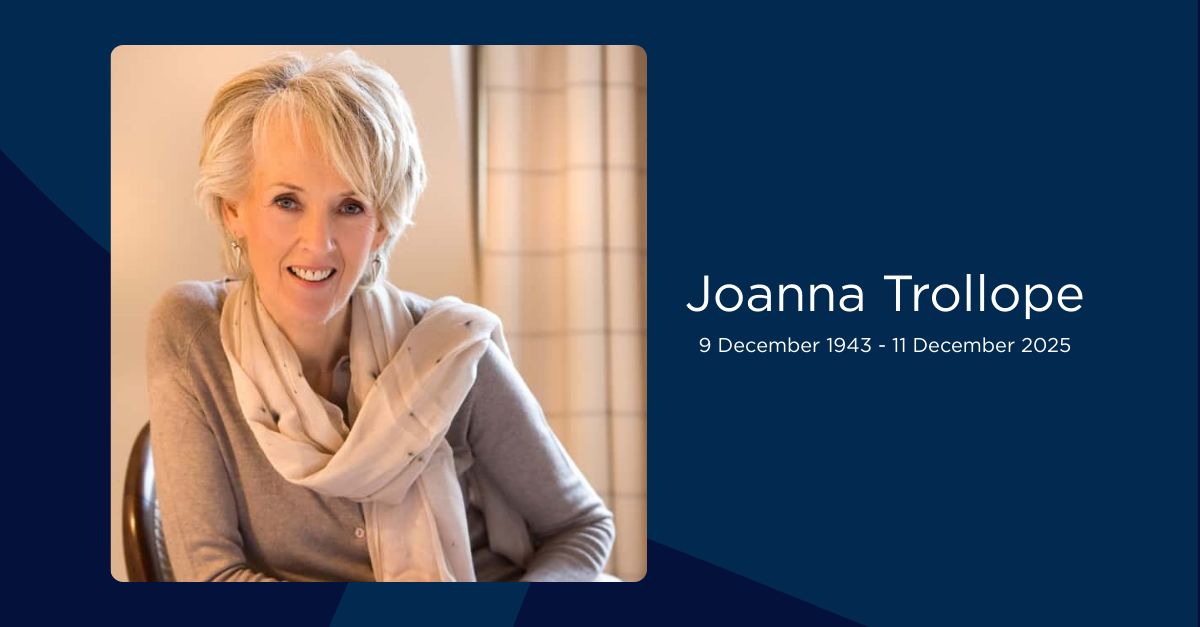I first discovered the power of stories when I was bedbound for six years and my imagination was my only escape. It helped me to cope with pain, frustration and isolation; I found freedom and joy that I wanted to share with others by becoming an author.
Writing is a particularly accessible career because it can be easily adapted, whether that’s through physical aides, dictation software or simply the flexibility to write when and where you are able. Unfortunately, I discovered things got more complicated once I published my first novel.
I am used to adapting to a world that’s not designed for disabled people, but I still struggle to communicate my specific health and access needs because my internalised ableism tells me my worth is based on my productivity and my ability to fit the norm. I have energy limiting symptoms and cognitive dysfunction but I tried to pretend they weren’t an issue during my path to publication.
“I am used to adapting to a world that’s not designed for disabled people, but I still struggle to communicate my specific health and access needs”
I didn’t know what to do – how much to disclose about my health or who to turn to for advice. I knew that needed to change, so I worked with the Society of Authors to form Authors with Disabilities and Chronic Illnesses (ADCI).
Launching the ADCI network
We launched in May 2020 and the response has been wonderful. The group is open to Society of Authors members who self-identify as disabled and there are now over 125 of us, connected through an active Facebook group and monthly Zoom meetings.
It’s everything I hoped for and so much more, we share our experiences, triumphs and challenges and there is relief in knowing that you’re not alone.
‘ADCI is important as a community of writers who offer understanding, support, practical knowledge and opportunities to those with disabilities, chronic illness and neuro-divergence,’ says member Anna Biggs. ‘It provides space to problem-solve and share best practice, while many in publishing are still unaware of the barriers the industry puts in the way of universal access or what allies can do to help break these down.’
“The friendship and sense of community that has emerged from the group has certainly been a bright spot over the past two years”
The friendship and sense of community that has emerged from the group has certainly been a bright spot over the past two years, when disabled people have become even more isolated as a result of the ongoing pandemic.
‘ADCI is the only place I can be honest about the true struggles and happinesses associated with my disability and writing,’ says another member, Hannah Hodgson. ‘It’s a place of people who are empathetic and understand. A place not only for support, but action.
We’ve already made a mark on the publishing industry – we are a group hungry, desperate for change. Especially recognition of our work in the mainstream. ADCI is where all of this doesn’t need to be said out loud, because in our different ways of life and genres of writing, we know what it is to live in this world in the shadows – ignored by the mainstream until the pandemic forced their hand in having online events.’
Promoting equal access
Despite an array of different disabilities, we have discovered commonality in the barriers we face in the industry, and this has led us to work together to find solutions and create guides to share with other disabled authors and those they work with.
‘I learned about how to create an accessibility rider,’ Hodgson says. Also known as an access rider, this is a way to clearly state your access requirements to organisations you work with. ‘Those who have been through the struggle have created solutions,’ Hodgson adds. ‘This group is the red twine on a massive note board connecting us to others, resources, and fun.’ Our guides are available from clairewade.com/adci
In September 2021 I guest edited the Disability Issue of The Bookseller on behalf of ADCI, and it was a great opportunity to raise awareness of the unacknowledged challenges disabled authors are expected to overcome, and set out what publishers, editors and agents can do to improve inclusion and accessibility.
“Advances in technology mean that most adjustments are easy and low-cost, from online meetings using closed captions to virtual book launches and hybrid events.”
Equal access means that everything from forms of communication to meetings, schedules, deadlines and events can all be adapted to meet the specific needs of the individual author, thus ensuring that everyone is included. Advances in technology mean that most adjustments are easy and low-cost, from online meetings using closed captions to virtual book launches and hybrid events. Lockdown has shown what is possible; there’s no excuse for going back to the way things were and isolating disabled people again.
It can be easy to dismiss accessibility as a disabled issue but we can all benefit from a more inclusive, adaptive industry. Remote access is the most obvious example, as there are many reasons why you might not be able to travel to a meeting or literary event, whether that’s because of illness, low-income, care responsibilities or distance to the venue.
Building in flexible adjustments from the start of a project is cheaper, more efficient and ensures inclusivity for all – both authors and readers, disabled and non-disabled – everybody wins.
Getting support from publishers
There are signs that the industry is listening to us. Penguin Random House reached out to ADCI to ask what more they can do and we are encouraged by the changes they are implementing. Zaahida Nabagereka, Head of Social Impact at Penguin Random House UK, told me, ‘Our goal at Penguin Random House is for the authors we publish to reflect UK society.
We have taken a number of steps to publish more disabled authors and to make the publishing industry more inclusive. These include running workshops for consumers and colleagues on accessible design with The Unmistakables [consultants delivering equity, diversity and inclusion training], funding research by the accessibility consultancy Inklusion into making literary events more accessible for disabled people, and tailoring our support for disabled authors, for example through providing a scribe.’
Nabagereka acknowledges, however, that ‘we know we still have work to do as data [from the PRH Diversity and Inclusion report] shows 8.4% of the authors and illustrators we acquired in 2021 identify as disabled, compared to 19% in UK society [according to the Department for Work & Pensions].
Next, we will look to enhance the welfare support on offer for all authors and formalise an approach to understanding and supporting the needs of our disabled authors.’
“The pandemic has shown us that we are all one virus, serious illness or accident away from chronic illness or disability. Does that mean you should be excluded?”
I am keen to see what this new approach looks like and how the improvements affect ADCI members. And while we haven’t heard from any other publishers, I look forward to the changes they instigate over the coming months and years, because disability is not going away.
The pandemic has shown us that we are all one virus, serious illness or accident away from chronic illness or disability. Does that mean you should be excluded? Should your voice not be heard just because you can’t communicate in the ‘normal’ way? Do you not deserve to be part of the conversation just because you can’t be physically in the room? Should you be forced to pretend you’re not sick or have to leave the industry completely?
Nobody wants to be faced with those choices, and if we put in place flexible working practices that support everybody, no matter what their health needs are, then this doesn’t have to be the case.
How to be an ally
ADCI is working hard to change things but we need the support of non-disabled allies – to raise voices, notice when we are not included in discussions and help us find our place in the industry – at events and festivals, in shops and on shelves. A full range of disabled voices and experiences have been missing from the world for too long.
Here are some practical suggestions on how to be a good ally.
Use your platform to raise disabled authors’ voices.
Share their social media posts. Invite them on to your blog, podcast or newsletter. Discover a list of ADCI members on Twitter.
Check disabled authors are represented at meetings and events you attend.
If you see a lack of diversity ask the organisers about it or direct them to ADCI: disabledauthors@gmail.com
Ask about event accessibility for both in-person and online events.
This is not just for disabled authors but readers as well. The more people ask what accessibility options are available, the faster it will become normal practice to ensure access for all. ADCI has a guide on how to make events accessible.
Support #KeepFestivalsHybrid.
Set up by Red Door Press and ADCI member Penny Batchelor, the #KeepFestivalsHybrid campaign aims to ensure that disabled authors and participants continue to be part of literary festivals and events after the return to in-person. As a speaker, ask for events you appear at to be made available live online and/or for a limited period afterwards. This increases the number of people able to attend your events, whether disabled or not.
If you’re judging competitions, make yourself aware of the Fries Test and use it to consider how disabled characters are portrayed in the entries.
Similar to the Bechdel Test, which asks whether a work of fiction has two women who talk to each other about something other than a man, the Fries Test ensures positive disability portrayal. You must be able to answer yes to the following questions:
- Does a work have more than one disabled character?
- Do the disabled characters have their own narrative purpose other than the education and profit of a nondisabled character?
- Is the character’s disability not eradicated either by curing or killing?
If you offer mentoring or other opportunities for under-represented voices, include disability in your list.
And use inclusive language. Deaf, neurodivergent and chronically ill authors for example may not consider themselves disabled so for the avoidance of doubt spell this out or use the legal definition of disability under the Equality Act 2010 (see below).
Make it standard practice to ask everyone about their access needs.
This includes forms of communication, website accessibility and the submission process. A simple question on a form or a quick email ensures participants know they will be included and their access requirements met with understanding. For guidance, read the ADCI guide on working with disabled authors.
(Image (c) Antonio Rodriguez / Adobe stock)
Claire Wade is the author of The Choice (Orion), winner of Good Housekeeping’s First Novel Competition and The East Anglian Book Award for Fiction. She has severe ME and writes about people trying to break free from the constraints of their lives, a subject she’s deeply familiar with. clairewade.com /@clairerwade
ADCI Network
Authors with Disabilities and Chronic Illnesses (ADCI) is open to Society of Authors members who self-identify as disabled. We have a Facebook group and a monthly Zoom meeting.






